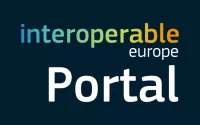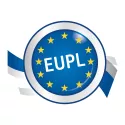
There are presently more and more discussions on the EUPL, often presented as an "innovation". This is far to be the case as the very first draft was written in 2005 (EUPL 1.0), automatically changed in the OSI approved version 1.1 in January 2009. The license (now 1.2 published in May 2017) will turn 20 in 2025. but habits take a long time to change and every day new groups seem to discover the license, not only inside the EU but especially outside.
In this forum, the idea is to mention the most interesting of these discussions, which - most of them - still take place inside the "free software communities" outside of Joinup. Ideas for the evolution of the license can be found there, i.e. in the framework of the new "Interoperable Europe Board".
A good point to remember: The Interoperable Europe Portal answers HERE to any legal question related to the EUPL. Please help us to complement our FAQ (There are no stupid questions :-)
Shared on





Comments
The "Write Free Software" Forum opened (HERE) an interesting discussion on the EUPL. The license name, which refers to the European Union seems to indicate that the license is "local", for use by Europeans only. The may be a reason for poor interest from the "Anglo-Saxon" world. But in fact the license can be used anywhere. In case of litigation it is stated that the Judge of the Licensor seat is competent: it may be a judge in the US for example. But in case the case needs interpretation (i.e. on what is exactly a "derivative", how far the licensor or the SaaS, or the AI service could be "liable") this judge will refer to the European law.
In the discussion, user "Skyvine" concluded as follows:
"By stating a preference for the EUPL I mean no disrespect for the pioneering work of
Stallman or the continued work organized by the Free Software Foundation.
Notably, in one document produced during official discussion of the EUPL
the 4 freedoms are explicitly acknowledged as the original founding principles of free
software which should still be respected.
Acknowledging the innovations of the EUPL is a celebration of the universal applicability
of the free software movement.
Joining in it is a continuation of the free software culture of sharing and learning and
building together, without bias towards or against any people."
During the whole month of August 2024, the Julia organisation opened (HERE) a discussion on "pacage licenses".
Should they be "permissive" like MIT or "copyleft", but in this case in the manner of the GPL/AGPL or in the more "reasonable/weak" manner of the EUPL ?
The main commentator stated:
"This brings me to an interesting category of licenses that I’ve seen termed “hybrid” and “weakly copyleft”.
The three most well-known such licenses are:
From my reading, both the EUPL and the MPL are simply better licenses, they are less ambiguous, have more thorough definition sections, and like the Apache license address patent rights."
The well-known REDDIT forum opened its own discussion on the EUPL in August 2024.
Many points were discussed HERE.
Discussion was opened with the following statement:
"While trying to pick a licence for my project I came across the EUPL licence. I've never heard of it and I found it interesting that the EU had its own OSS licence.
What I like about it:
Heve you used it in one (or more) of your projects?
What drawbacks do you see, why have you decided against using it?"
A new discussion raised on September 10 on the Open Source Stack Exchange forum:
Why would the GPL be "viral", while EUPL isn't, according to the EUPL authors?
Most comments state that the EUPL is not "anti-viral" by design but just by resulting of EU law, and that the GPL is exactly in the same situation.
But they forget that - at the contrary of the GPL, the reference to EU law is explicit in the EUPL: the applicable law MUST be the law of the Member State of the Licensor, or of Belgium if the licensor has no seat in EU. The EUPL has no similar provision on the competent judge that could be located outside EU, meaning that a judge from UK may rule a case on the EUPL involving local actors (but at the condition of interpreting copyright protection according to EU law).
The discussion EUPL - a better choice for European citizens? developed from March to December 2024 inside the group « Write Free Software » is certainly worth reading: here.
One criticism concerns the name of the license: EUPL can lead one to believe that it is reserved to be used by licensors from the European Union (European citizens) and that it operates on the territory of the EU only.
On this point, it seems that there is a communication effort to do: the licence is “originated” and promoted/supported by the European Commission, but anyone in the world can use it.
Under an April 25 discussion inside the "Lobster" group , user F. S. asked the question that all voluntary and independent open source developers ask themselves:
How can sole maintainers work with multi-billion corporations without being taken advantage of?
The answer was: Strong copyleft licenses (AGPL, EUPL…), as simple as that. Don’t give them any chance to screw you"
There are some nuances to this answer: the EUPL copyleft is not as "radical or strong" as the AGPL's: there is no pretention for virality and a much broader compatibility. But it is true that network distribution is covered by both licences. However, regardless of the quality of the license and the developer's legal rights, everyone emphasizes the difficulty of sustaining a lawsuit: it is costly and often very long (up to 13 years recently in France). Perhaps there is scope here for the Commission's new Open Source Strategy: declaring that it will side with EUPL users in the event of copyright infringement.